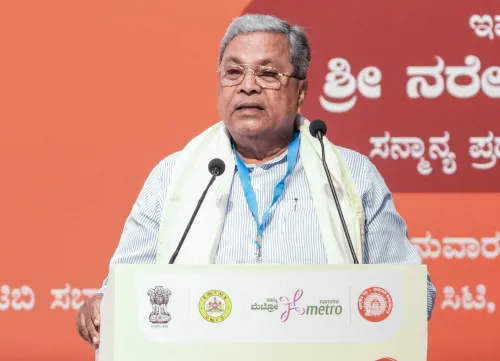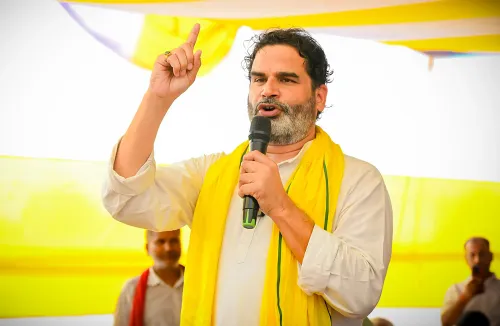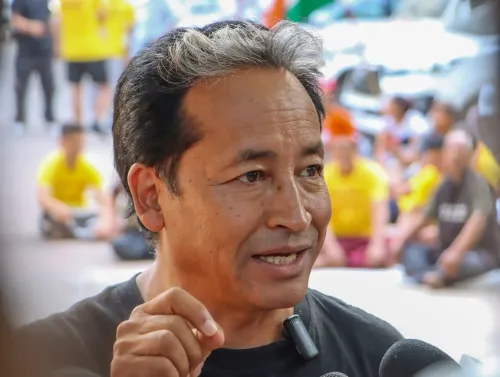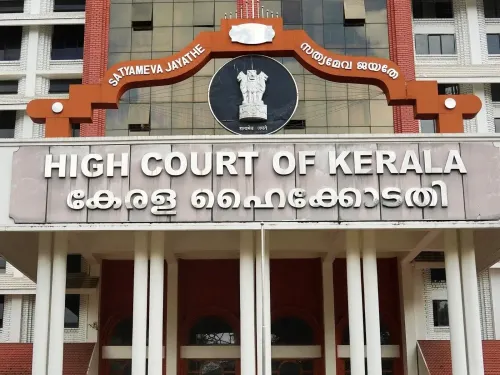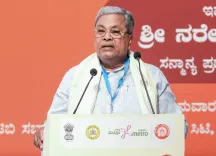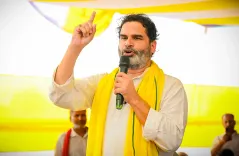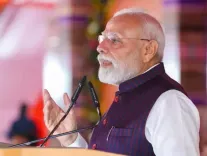Is Ladakh's Youth Being Used as Pawns? L-G Discusses Violence and Instigators
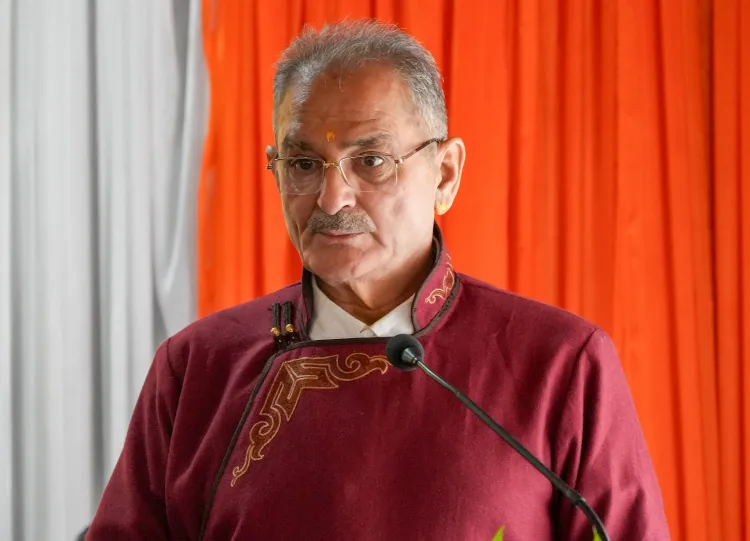
Synopsis
Key Takeaways
- The situation in Ladakh is currently calm after a period of violence.
- Young individuals were manipulated during the unrest.
- The administration is focused on identifying and isolating instigators.
- Dialogue remains crucial for resolving issues in the region.
- The safety of innocent individuals is a top priority.
New Delhi, Oct 3 (NationPress) Ladakh's Lieutenant Governor Kavinder Gupta stated on Friday that the Union Territory is currently in a state of calm and normalcy following last month's unexpected violence. He emphasized that the administration is vigilant to prevent troublemakers from seizing the opportunity to create chaos again.
During a special interview with IANS, the Ladakh L-G asserted that young individuals were manipulated during the violence that erupted on September 24, and efforts are underway to identify and address the instigators with appropriate measures.
Here are the full excerpts from the interview:
IANS: What is the current situation in Ladakh? Who was responsible for the violence?
Kavinder Gupta: The violence that took place in Ladakh on September 24 was both unfortunate and tragic, leading to the loss of four young lives, for which I express my profound sadness.
These young individuals were exploited as pawns, which is unacceptable. We are dedicated to ensuring peace and stability in Ladakh. However, there are elements who do not wish for Ladakh to remain tranquil.
The situation has been stabilized. We are receiving support from the local populace as well. Overall, the present state is peaceful. Nevertheless, to maintain this peace and prevent a recurrence of such incidents, it is crucial to identify and isolate those responsible for instigating the violence. However, we assure that innocent individuals will not face any repercussions.
IANS: How do you respond to the Ladakh Apex Body's refusal to engage in dialogue with the Central Government?
Kavinder Gupta: Historically, all issues in Ladakh have been settled through discussions. Dialogue is the only pathway forward, as communication is key to resolving all conflicts.
IANS: Sonam Wangchuk's wife has penned a letter to the President and Prime Minister requesting his immediate release. What are your thoughts on this?
Kavinder Gupta: I have received his wife's letter as well. However, any actions taken by the Home Ministry must rely on credible evidence gathered under the National Security Act (NSA). An investigation will be conducted.
The commendable work of Sonam Wangchuk should be acknowledged, but the sudden escalation of violence in a previously peaceful Ladakh in just one day requires thorough investigation. Had we not managed to control the violence within an hour and a half, Leh could have faced severe destruction. We must uncover who was behind it. This remains a matter for inquiry.
IANS: Will this violence impact tourism in Ladakh?
Kavinder Gupta: I assure you that conditions will improve. Local residents also acknowledge that the atmosphere was disrupted by certain individuals. As a border state, such incidents should not occur again. The citizens of Leh-Ladakh have consistently stood united with the nation during the 1965, 1971, and Kargil wars, as well as during the Galwan Valley incident. The loss of four lives serves as a lesson for us all. It is vital to determine who instigated the violence, and an investigation will be launched.
IANS: Opposition parties are criticizing the arrest of Sonam Wangchuk. How do you respond?
Kavinder Gupta: It is clear to everyone who is attempting to undermine the nation. From Shaheen Bagh to 'Gen Z,' the public has observed and recognized those who provoke unrest. Attempts were made to incite others by referencing Nepal, but the people rejected these efforts. There have been attempts to disrupt the civilizational traditions of Ladakh, but we will not permit that. Yes, a mistake was made, but we will ensure it does not happen again.
IANS: How do you perceive the RSS reaching its 100-year milestone?
Kavinder Gupta: An organization can endure for such a long time only if its foundation is robust. The RSS is devoid of casteism or religious fanaticism.
The RSS has always prioritized national interests. It has operated consistently since its founding by Dr. Hedgewar in 1925. I consider myself fortunate to be a part of the RSS.
All that I have learned has stemmed from the RSS. Those who view the Sangh from a distance may question it, but those who have observed it closely have always held it in high regard.

